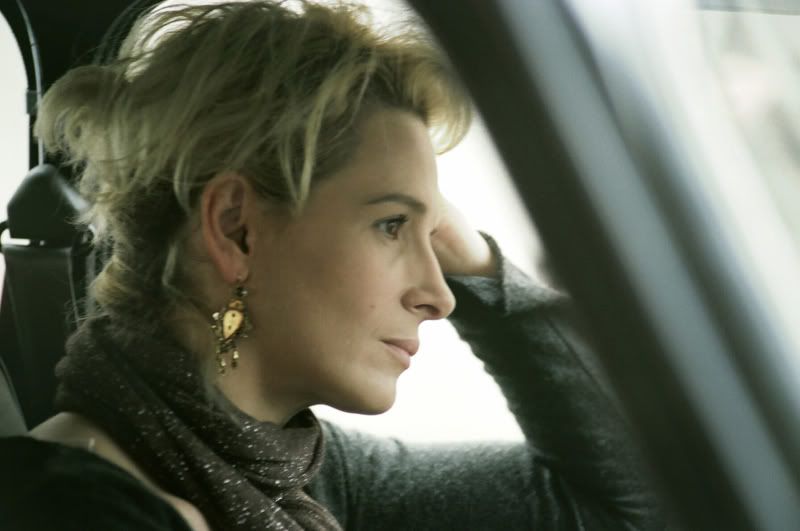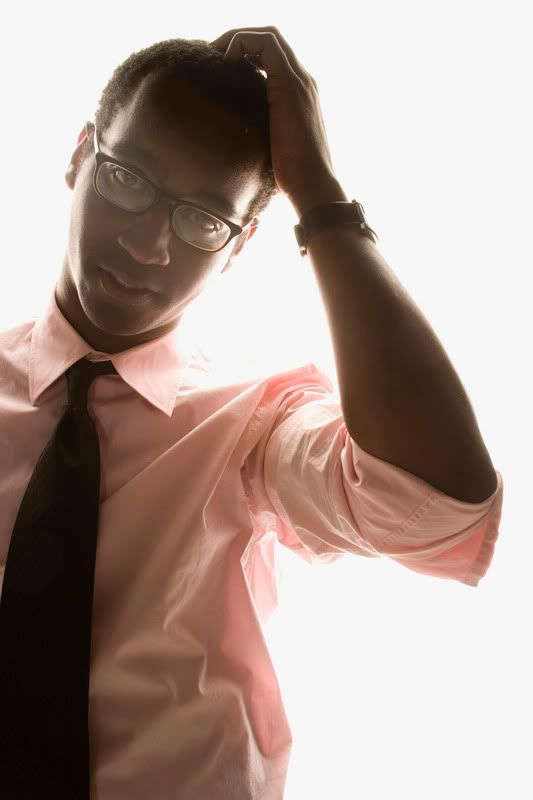 "One of the most vibrantly alive and true characters in Ms. Binoche’s career, a résumé inundated with melodramatic tears, Suzanne invades the film like a hurricane, a riot of colors, textures, patterns and words," lauded Manohla Dargis in her New York Times review of Hou Hsiao-hsien's "The Flight of the Red Balloon." Making his French language film debut, Taiwanese director Hsiao-hsien creates a film that is pure cinema in the most Bazinian of defined terms. More interested in the quiet, surprising moments in the days of the life of a single mother struggling to balance work, home, her neighbors, and the battle of the day to day existence we all endure, Hou's rigorously observational eye and off the cuff vision allows an actress to reveal an electric and wholly maternal side. An actress of great diversity not only in her body of work and but her tenacious talents (she's been Steve Carell's romantic opposite and has appeared in a Michael Haneke film on more than one occasion), Binoche gives herself up for Hou and splendidly marches in a new direction, blonde hair and all. Binoche's bottled blonde pouf of a coif is immediately noticeable within seconds of her first appearance on screen. This isn't the tortured brunette we're used to seeing, now she's the torture blonde. Oscillating somewhere in between Marilyn Monroe in "The Misfits" (a stretch, but the hair comparison isn't far off) and Gena Rowlands in "A Woman Under the Influence", Binoche is madcap, loose, and frayed at the seams, sometimes what looks like literally in her bobo chic costumes. Hou didn't write a traditional script for his homage to the Albert Lamorisse 1959 film "The Red Balloon", and it shows beautifully in scenes that bounce along without any structure or real connective tissue other than forming an amorphous representation of bittersweet moments and moods. When Binoche lunges into a scene she's either screaming into a cell phone or scurrying around her cluttered apartment before work with cigarette dangling from mouth, Earth Mama cleavage on full display, and facial expression perma-frantic. It's a richly organic performance that is never quite sure where it's going, but then again that's the joy of the film. Watching Binoche argue on the phone, her son playing video games, and their Chinese babysitter off in the distance all the while a blind man tunes up their piano in one uninterrupted breathless shot is cinema at its best. It's such nuanced visual poetry and that's what makes Binoche and Hou such exceptional cinematic partners for this film. "A bit funny and a bit sad," chirps a child at the sight of a Félix Vallotton’s painting at the Musée d’Orsay in the film's last few minutes. The same could be said for Binoche's sublimely chaotic performance.
"One of the most vibrantly alive and true characters in Ms. Binoche’s career, a résumé inundated with melodramatic tears, Suzanne invades the film like a hurricane, a riot of colors, textures, patterns and words," lauded Manohla Dargis in her New York Times review of Hou Hsiao-hsien's "The Flight of the Red Balloon." Making his French language film debut, Taiwanese director Hsiao-hsien creates a film that is pure cinema in the most Bazinian of defined terms. More interested in the quiet, surprising moments in the days of the life of a single mother struggling to balance work, home, her neighbors, and the battle of the day to day existence we all endure, Hou's rigorously observational eye and off the cuff vision allows an actress to reveal an electric and wholly maternal side. An actress of great diversity not only in her body of work and but her tenacious talents (she's been Steve Carell's romantic opposite and has appeared in a Michael Haneke film on more than one occasion), Binoche gives herself up for Hou and splendidly marches in a new direction, blonde hair and all. Binoche's bottled blonde pouf of a coif is immediately noticeable within seconds of her first appearance on screen. This isn't the tortured brunette we're used to seeing, now she's the torture blonde. Oscillating somewhere in between Marilyn Monroe in "The Misfits" (a stretch, but the hair comparison isn't far off) and Gena Rowlands in "A Woman Under the Influence", Binoche is madcap, loose, and frayed at the seams, sometimes what looks like literally in her bobo chic costumes. Hou didn't write a traditional script for his homage to the Albert Lamorisse 1959 film "The Red Balloon", and it shows beautifully in scenes that bounce along without any structure or real connective tissue other than forming an amorphous representation of bittersweet moments and moods. When Binoche lunges into a scene she's either screaming into a cell phone or scurrying around her cluttered apartment before work with cigarette dangling from mouth, Earth Mama cleavage on full display, and facial expression perma-frantic. It's a richly organic performance that is never quite sure where it's going, but then again that's the joy of the film. Watching Binoche argue on the phone, her son playing video games, and their Chinese babysitter off in the distance all the while a blind man tunes up their piano in one uninterrupted breathless shot is cinema at its best. It's such nuanced visual poetry and that's what makes Binoche and Hou such exceptional cinematic partners for this film. "A bit funny and a bit sad," chirps a child at the sight of a Félix Vallotton’s painting at the Musée d’Orsay in the film's last few minutes. The same could be said for Binoche's sublimely chaotic performance.
Thursday, July 31, 2008
performance: woman on the verge of a nervous breakdown
Posted by
w.
at
4:24 PM
![]()
![]()
Labels: film, women i love
Subscribe to:
Post Comments (Atom)



1 comment:
Great review! I've been dying to see this.
Post a Comment